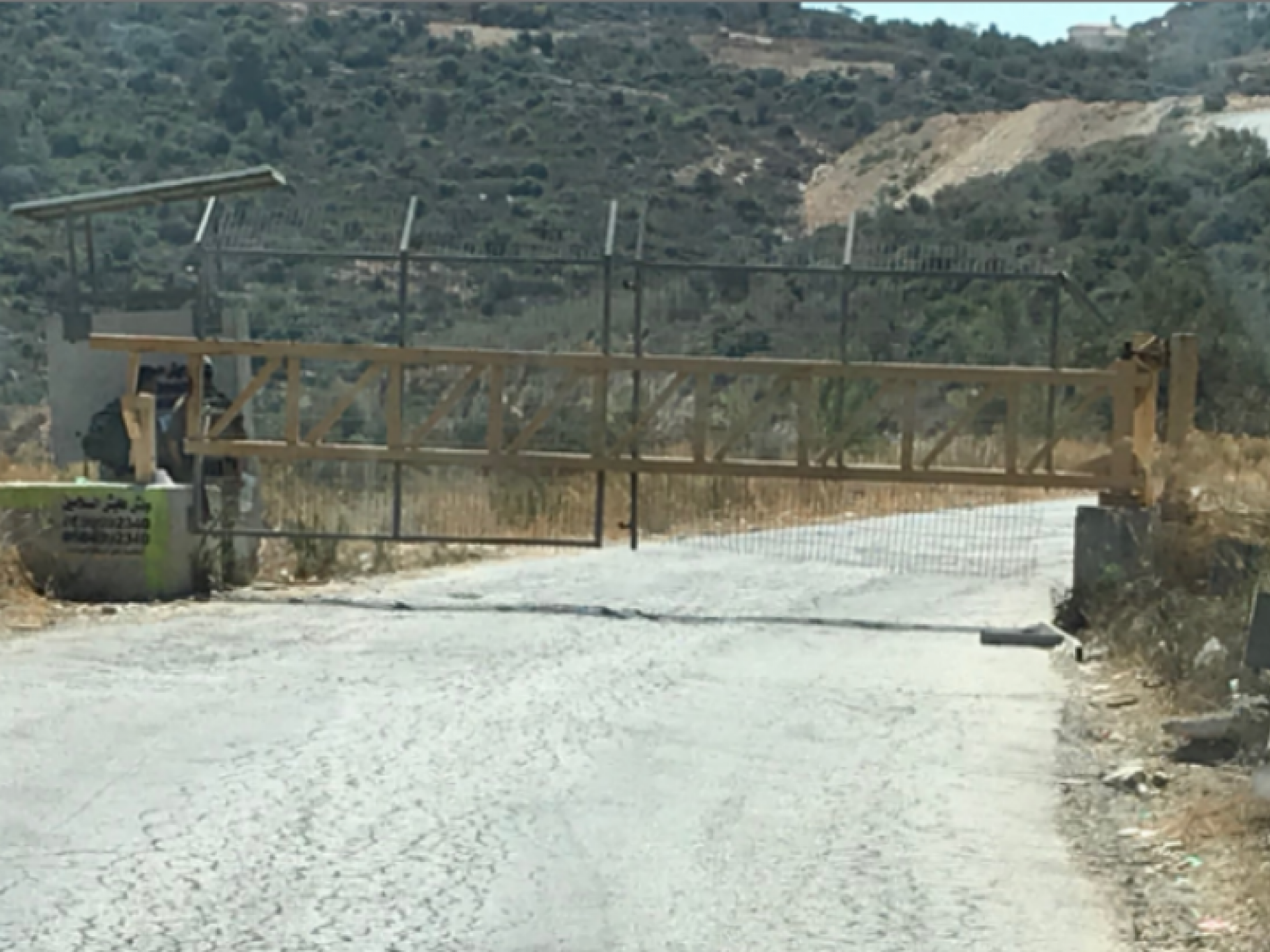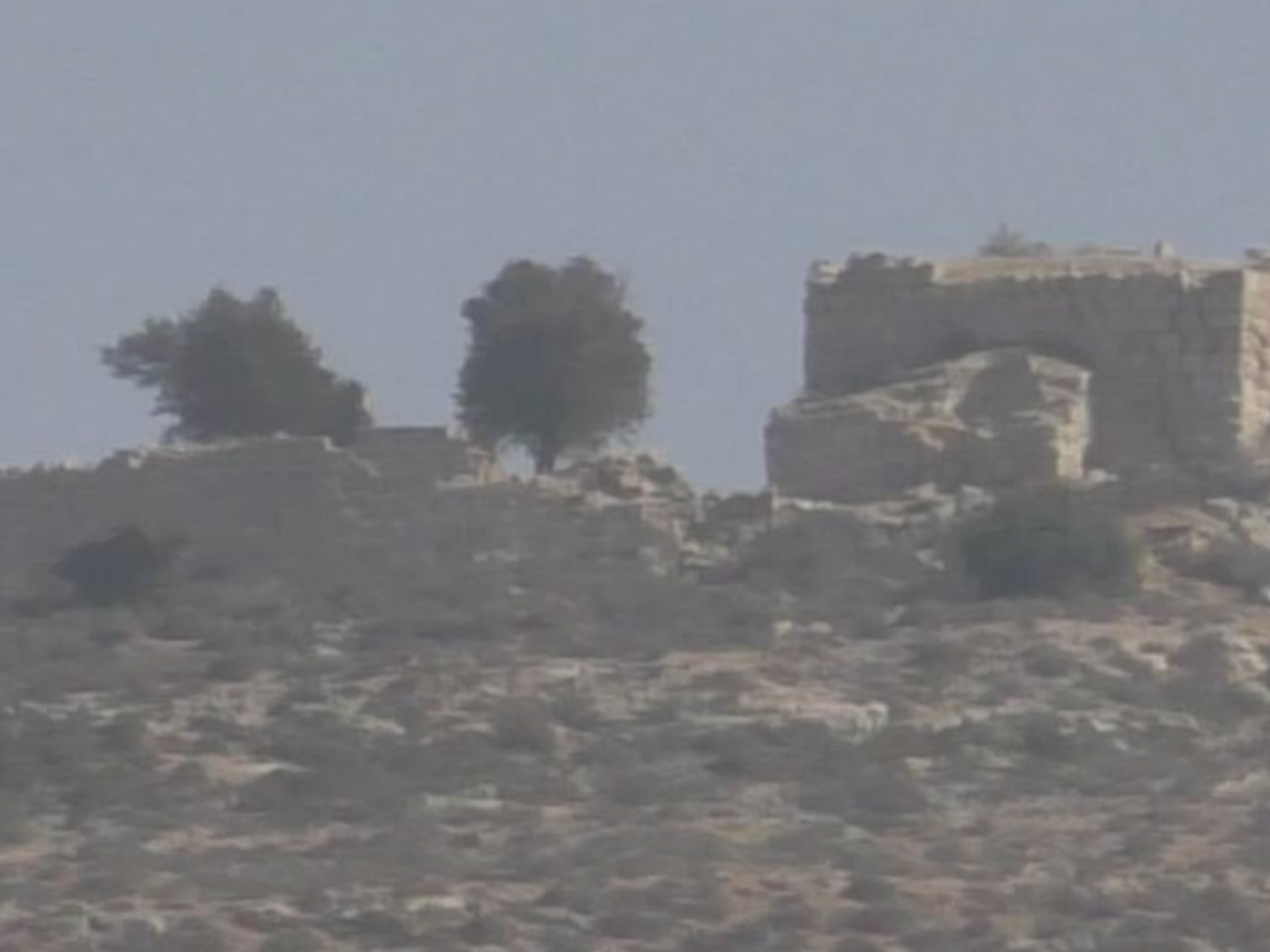A Search for makams: Is Palestinian placidity desperation or the silence before the storm?
We headed for Beit Ghur, meaning to find Palestinians who own lands on the Bituniya range, interview them about their difficulties regarding loss of land and denial of access to the maqams Sheikh Zaitun and Umm Al Sheikh.
This time we felt like Palestinians who are forced to drive dozens of kilometers to reach nearby destinations which they can actually see from their homes. Since road 443 is blocked (to Palestinians) in all directions we had to travel through Deir Ibziya and from there to Beit Ghur. We reached the Dolev junction and discovered that the entrance to Ein Bubin (named Dani Spring by the Jews) is blocked by the army. No one can come or go. We also met Dror Etkes, Gideon Levy and Alex Livek there, who were making a springs tour and ran into the same blocking. We turned around and took a potholed track to Na’ama, Bil’in and Saffa and reached Beit Ghur after a long drive.
At Beit Ghur Al Tahta (lower), like everywhere else in the West Bank, the grocery store is the way to make contacts. Still on our way we remembered that American Congresswoman Rashida Tlaib’s grandmother lives in Beit Ghur – the same Congresswoman who had meant to visit here and was forbidden entry. Since we didn’t manage to make an appointment ahead of time with the upholsterer (our acquaintance from our previous visit), we decided to visit her and her family, if we were lucky. And we were indeed. The grocery shop owners were not locals and did not know her, but B., who had entered the shop, knew her and offered to help. We asked him to accompany us and he agreed.
We were welcomed by the grandmother and her daughter-in-law. The house is old, simple and modest. We were offered coffee and water and told that their lands are located beyond road 443. Instead of a 3-minute walk they have to drive about 7-8 kilometers through Beit Likiya village. They thank goodness there’s no separation fence and they need not apply for permits to access their lands, but their life certainly is not easy. B. left us to go to work, not before he mentioned that he does not wish to speak of the robbed lands. He is content with his own life and work, his situation is satisfactory and he does not complain. Before leaving, he left us the phone number of the Sheikh Zaitun landowner in order to make contact with him.
The grandmother, on the other hand, told us that her younger son cannot live in Beit Ghur because the villagers are not issued construction permits, so he lives in a rented home in Ramallah, far from her. She has not seen Rashida for 15 years already. The last time she came to show them her son. 12 years ago only the father and son came. She told us this and sighed over the families being forced apart. Beyond the road one could see the family’s lands. However, she said, she is already 85 years old and can no longer get to them. The “Mt. Nevo sadness” syndrome, that’s how the poet Rachel called it. The old woman reminisces how she would go out to gather sage and greens and firewood at Sheikh Zaitun. She remembers the spring, Ein Jiriyut. She cannot hear well, conversations are a challenge.
We took our leave and went looking for our upholsterer. We found about 6-7 upholsterers who were all working in Israel at the time so we didn’t even meet our own one.
The way back was potholed as well.
The last time we visited Beit Ghur about two years ago and spoke about the Jewish settler-colonists’ struggle over the peak of the range (in Arabic: Jabal Abu Zaitun and Jabal Umm Al Sheikh, with maqams at their tops). This is a struggle filled with a strong patriotic spirit and tied to the Jewish sources, which we cannot dismiss as being mythical and surreal. They (the settler-colonists) speak of the inhabitants that were there continuously during the Second Temple period, and their will to renew it. This discourse totally ignores the Palestinian neighbors, and is filled with disturbing patronization and dismissal. The Palestinians, on the other hand, speak of their troubles here and how, about their disintegrating families, forbidden construction, the fiber of life that keeps unraveling, hardships in finding livelihood, and the lands of which they have been robbed – all of it under the heading “illi biji min Allah, ma ahla…” – whatever God does is for the best… Does this placidity, this passivity result from despair, or is this the silence before the storm?



